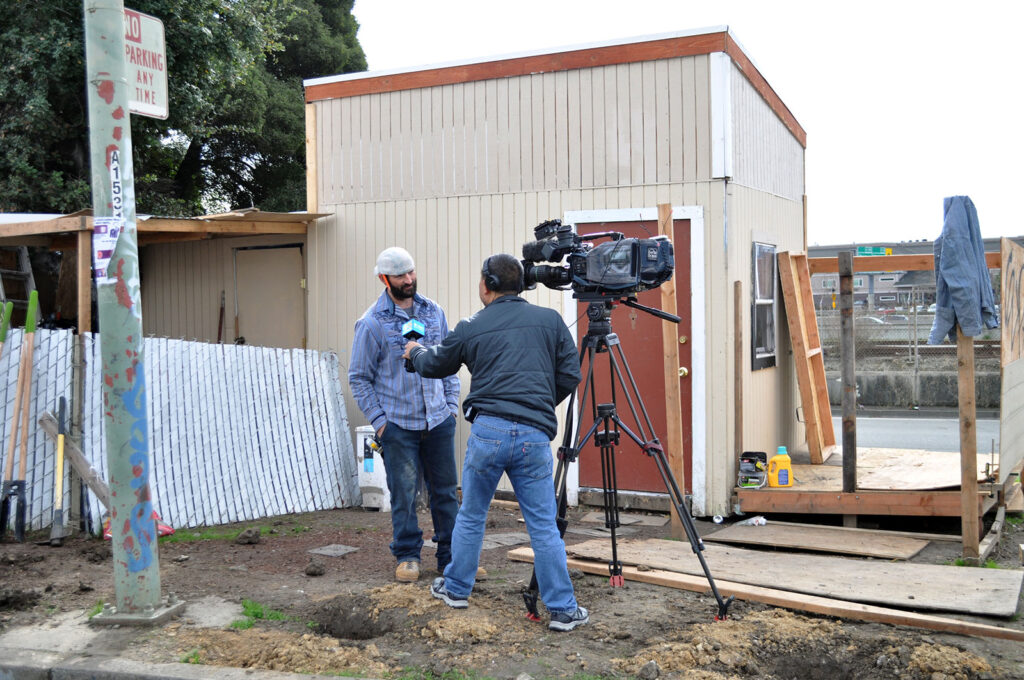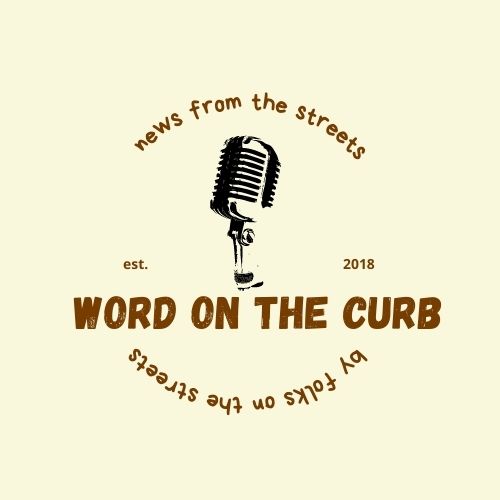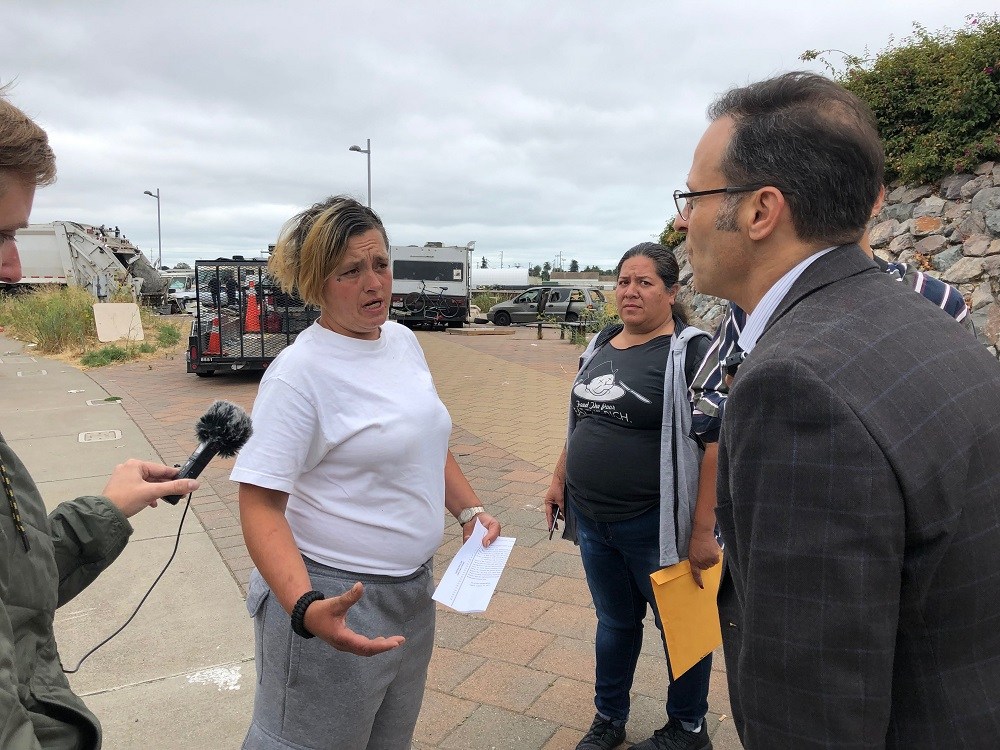There is a deeply rooted anti-homeless, anti-Black, anti-poor biased woven in the foundation of the United States culture and value system.
It was created with the creation of the first unhoused population created and maintain by this county – the Native Americans, who were forced into homelessness thru colonization and land theft. It continued thru the creation and implementation of the Jim Crowe laws that made any and all things Black folks do a crime. It is maintained and based on a false and inhumane notion that profits and property are more important that human life, especially Black lives.
There is a stereotype created during the former U.S. President Ronald Reagan’s reign that to this day persists. When Regan de-funded and shut down all public mental health facilities in the 1980’s, millions of people living in those facilities were forced on the streets. During this time Reagan also defunded all veterans outreach programs, leaving veterans returning from the Vietnam War with limited access to housing, mental health support and other direct services. This is where the sterotype that all unhoused people are struggling with mental health issues originates.
The Regan administration also flooded the urban areas with crack cocaine and delared a war on drugs, but it was really a war to make sure Black and Brown communities did not continue to organize for self-determination and justice. One of the impacts of the crack epidemic was the destablization of the family and home, which lead to homelessness. This is where the stereotype that all unhoused people are drug addicts emerged from.
Ironic that despite these two prevailing stereotypes being the popular narrative about the unhoused population for the past 40 years, the government has refused to fund programs specific to this demographic. And while there are many living on the streets that struggle with mental health issues, including addiction, this stereotype does not apply to everyone, especially in this current era of gentrification generated homelessness. The homeless population is not a monolithic group. How we ended up unhoused, what we need to get out of our situations, and what support looks like is as diverse as the number of people living curbside.
These stereotypes of the unhoused do not help solve the problem, and do not contribute towards supporting the broad spectrum of the diverse population of unhoused residents. But why do these stereotypes persist? And how can we combat the stereotypes and change the narrative about homelessness and the unhoused?
Changing the narrative, Speaking for ourselves
If folks who have never been unhoused listened to those who are or have been unhoused, we believe the negative stereotypes would be eradicated. We believe uplifting and amplifying the voices of the unhoused helps housed people understand the diversity of the unhoused demographic, and the depth of the multitude of experiences people have. We believe that changing public opinion about the unhoused and homelessness will lead to less harassment of our curbside communites, more interventions that are humane and dignified, and permanent solutions to end homelessness.
We believe that those most impacted by the experience of homelessness need to be heard.

That is why we created Word on the Curb. Thru this media advocacy program, we train, support and uplift the voices of those who are expereincing homelessness and housing insecurity. We provide opportunities for media advocacy to unhoused folks by providing workshops that include media spokespeople trainings, how to get the media to listen, how to control the narrative when speaking to the media, how to develop on-going replationships with media outlets and reporters.

Once folks are comfortable and ready to talk to the press, we connect them to media outlets looking for people interviews. We also offer them an opportunity to be a paid correspondent for Word On The Curb. Word On The Curb provides platforms for unhoused folks to create their own media.
Word on the Curb Goes On The Road!
In December 2022, Word on the Curb expands its coverage and Goes On the Road! A team of our correspondents will be traveling across the United States for several months to work on two different projects.
One project entitled “I Got Some Questions”, will be documenting unhoused activists who are organizing in different cities, as well as visiting cities across the United States where local government is choosing to address and intervene homelessness with real solutions grounded in dignity and humanity that ultimately has ended homelessness in their cities. This project seeks to show how the development model of gentrification has created a homeless epidemic; how unhoused people are organizing, advocating and creating solutions for themselves; and how other cities have successfully chosen the path of humanity rather than criminalization, for profit development, and ineffective band-aid applications. We hope to document the ground breaking work of solution based approaches, instead of harm based approaches.
The other Word on the Curb Goes On The Road! project is called “The Only Thing New Is You, The Problems Are Old”. A caravan of our Bay Area Native American correspondents facing homelessness and housing insecurity within the colonizers county and government will be traveling across the United States to interview homeless Native Americans to connect colonization, gentrification and homelessness. The kruse will also be visiting First Nations who are taking back their ancestral lands, defending sacred sites, and protecting Mother Earth, and rebuilding their sovereign nations thru land based direct action, legislation and/or lawsuits.

All Word On The Curb media segments are broadcasted on the Village in Oakland’s Facebook page and YouTube platform.
Word On The Curb correspondents also have an opportunity to publish news articles, op/ed pieces, photos and poems in the Berkeley based Street Spirit monthly newspaper. You can read thru an archived collections of these written pieces here.
Word On The Curb correspondents also speak on panels and lecture at colleges and universities across the United States and even in the Philippines. To see archived public speaking engagements check out out The Village Playlist on YouTube.
Word On The Curb is crucial in shaping and changing the narratives that appear in the media. We are able to pitch news stories to the media and have unhoused residents speak for themselves after being trained thru Word On The Curb. Examples of some of our media spokespeople putting their media advocacy work in practice can be seen in the following links:
Democracy Now!’s “State of Emergency: Special Report on California’s Criminalization of Growing Homeless Encampments.
- Reporter Lukas Guilkey’s Project on Homelessness UC Berkley School of Journalism.
- Oakland’s Homeless Community Knows How to End the City’s Housing Crisis. Will Its Leaders Listen?
- Frontline Advocates Speaking About How Pandemic Impacts The Unhoused
- Ella Baker Center interviews Needa Bee
- E12 & 23rd Curbside community vs. Mayor Libby Schaaf
- Working & homeless in Oakland
Pendarvis interviews Needa:
Landless Not Voiceless Exhibit:
